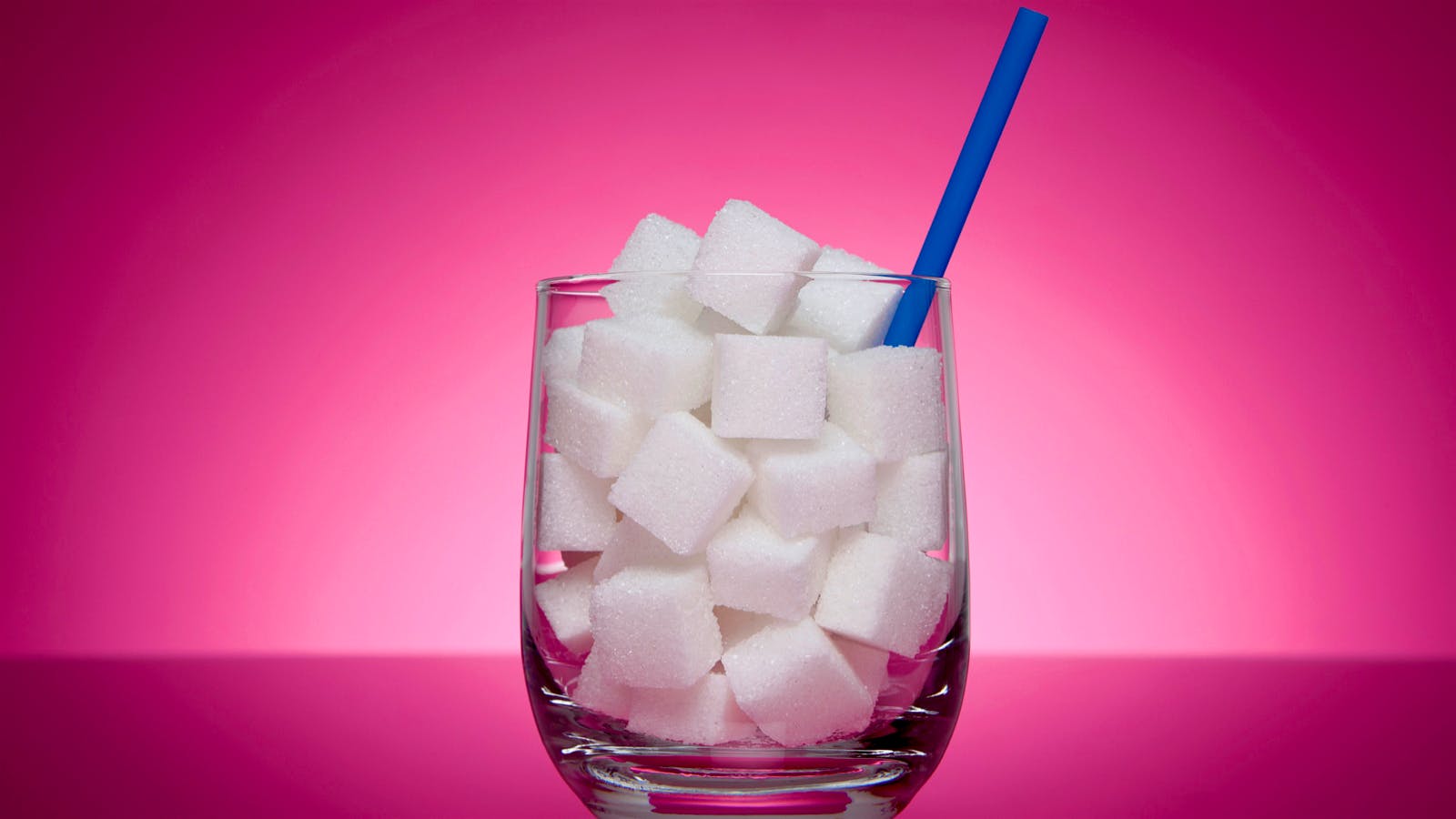Dietary "no-nos" come and go, but one of the most prominently and consistently warned-against nutritional hazards of the past few decades is excessive sugar consumption. Sugar has been linked with health problems including diabetes, obesity, cardiovascular disease and tooth decay, to name a few. But sugar has also become a bit of an obsession, with myriad opinions on how harmful it is and what kinds of sugars do the most harm. Is wine’s sugar content something that drinkers should worry about?
We asked leading experts for the facts on sugar, wine and potential health concerns.
Is There Sugar In Wine?
Without sugar, there is no wine. Ripe grapes naturally contain sugars, and in the process of turning grape juice into wine, most of the sugars are converted into alcohol via fermentation. Any sugar that remains after the fermentation process is called residual sugar. This is the primary source of a wine's sugar content.
Though there aren't any hard-and-fast rules determining exactly how many sugars a specific type of wine will contain, and only a few wineries opt to feature nutritional information on their labels, there are still ways to get a good sense of how much sugar is in your glass of wine—the obvious one, of course, being how sweet the wine tastes. (Just don’t confuse fruitiness for sweetness.)
How Much Sugar Is In Wine?
You can also pick up some clues without opening the bottle: Generally, if a wine is described as "dry," that means there are less than 10 grams per liter of residual sugar; a "sweet" or dessert wine has more than 30 grams per liter. Wines that fall in the middle of these limits are called "off-dry."
For Champagne and other sparkling wines, keywords to look out for are, in order from driest to sweetest: extra brut, brut, extra dry or extra sec, sec, demi-sec and doux.
The USDA also offers some guidance: According to its website, an average dry table wine has 1 to 2 grams of sugar in a standard 5-ounce serving, and sweet wines, such as Sauternes, Port and ice wine, which are usually served in smaller amounts, contain around 8 grams of sugar per 3.5-ounce pour (though this can vary).
What Kind of Sugar Is In Wine?
So what do sugar levels mean for your recommended dietary intake? Experts say it depends if the sugars are naturally occurring or added.
"When we use the term 'sugar' from a metabolic or nutritional standpoint, we mean sugar that may be added into products, and we also mean naturally occurring sugar that can occur, say, in fruit, milk and even some vegetables," Kelley Bradshaw, a registered dietitian and the outpatient clinical manager of the Nutrition and Wellness Service at Brigham and Women’s Hospital, told Wine Spectator. "For natural sugars that would appear in fruit, vegetables, grains and dairy, we don’t have a restriction."
The good news is that wine, a product of fruit, almost always contains only natural sugars, which health experts do not put a limit on. But that does not mean you can go bananas with the sweet stuff! Although there is no universal limit on how much natural sugar you should consume, the federal Dietary Guidelines for Americans recommends that carbohydrates (including sugar, as well as starch and fiber) make up only 45 to 65 percent of your total daily calories. It is especially important to be mindful of your total sugar intake if you also consume a lot of soda, desserts or processed foods.
Furthermore, a handful of producers do add sugar or grape concentrate to sweeten a (usually lower-quality) wine—these are the added sugars that you need to watch out for. The American Heart Association recommends limiting daily added sugar intake to about 25 grams (or 6 teaspoons) of sugar for women, and about 36 grams (or 9 teaspoons) for men.
Want to learn more about how wine can be part of a healthy lifestyle? Sign up for Wine Spectator's free Wine & Healthy Living e-mail newsletter and get the latest health news, feel-good recipes, wellness tips and more delivered straight to your inbox every other week!
Wine's Sugar Content and Insulin and Diabetes
We've reported on many scientific studies that look at the relationship between alcohol and diabetes and other blood sugar–related health concerns. Most recently, a paper from a study on wine and type 2 diabetes suggested that those with the disease might experience benefits if they switch from abstention to moderate drinking. A study from 2017 had similar findings, reporting that frequent, moderate drinking was linked with a lower chance of developing type 2 diabetes.
It does appear that wine in particular might have a stronger protective effect against this disease than other beverages. A 2016 study found that while wine, beer and spirits each were associated with a lower type 2 diabetes risk, those in the study that drank wine experienced a significantly lower risk.
It is believed that these benefits are due to alcohol's (and potentially, in particular, wine's) ability to increase insulin sensitivity, which allows the body to better process sugars and regulate blood-sugar levels.
"Articles have been published highlighting research that has demonstrated that modest consumption of wine—and even tea and cocoa—may have a protective effect in the development of diabetes," said Dr. Susan Williams, a practitioner at the Endocrinology, Diabetes and Metabolism Institute at the Cleveland Clinic. "Flavanols, naturally occurring polyphenolic compounds [found in these food items], have become important potential preventive agents."
However, experts warn that these findings indicate correlation, not causation. Other factors may be at play. "It does seem from studies that alcohol consumption decreases insulin levels in non-[diabetics]. However, the mechanism is poorly understood," said Dr. Caroline Apovian, a professor of medicine at Boston University and the director of the Center for Nutrition and Weight Management at Boston Medical Center. "I am skeptical of these studies because I think that moderate drinkers probably eat healthier than nondrinkers—certainly those who drink wine tend to eat healthier."
Overall, researchers and medical experts seem to agree that while we may not know exactly how alcohol affects diabetes risk and insulin functions, it's probably safe to enjoy a glass of wine. However, drinking heavily is never recommended, especially for those with diabetes and other health conditions.
"In general, it is considered beneficial to have one glass of red wine [a day], and there are studies that show that," said Joy Cornthwaite, a registered dietitian and diabetes educator at the University of Texas Health Science Center at Houston. "But … there are some drugs that promote low blood sugar, and if you take those in the presence of alcohol, it’s very dangerous, because if a person has liver-function issues, then their liver doesn’t kick in and provide them with extra glucose," which is protective against low blood sugar.
Does Wine Work With Low Sugar Diets?
If you're concerned about your sugar intake, but don't want to give up wine, you're in luck. Wine, namely dry table wine and brut bubbly, are widely considered all-clear for low-sugar diets. In fact, the majority of wines, beers and spirits contain little to no sugar. (However, when it comes to liquor, watch out for those mixers!)
But if you like your wines with a little residual sugar, or you’re really trying to cut back on your sugar intake, there are ways to drink and still keep your nutrition goals in check. The first thing to keep in mind is how much you are drinking. The current recommendation from the USDA Dietary Guidelines is no more than one drink a day for women, and no more than two for men. And pour size matters too: "The [standard wine] serving size is 5 ounces … if you fill your glass appropriately and you don’t get a party-size glass … the sugar content is usually less than 5 grams, for sure," Cornthwaite said.
Bradshaw offers another tip: "If you want the wine, you can make a cut somewhere else, like instead of dessert, having wine." Just don't give up the healthy natural sugars found in fruits and vegetables—those are the good ones! And don't replace a whole meal with a glass of wine.
It really does come down to the choices that you make. If you’re committed to following good nutrition habits, and consulting your doctor when making health decisions, wine can be the sweetness on top of a well-balanced lifestyle.












